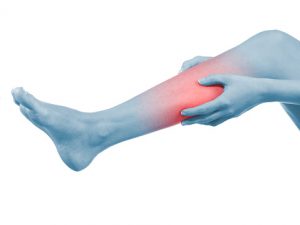 Multiple sclerosis spasticity causes involuntary muscle spasms and muscle stiffness. Spasticity can be mild or it can be quite severe ranging from the feeling of tightness to severe pain and uncontrollable spasms.
Multiple sclerosis spasticity causes involuntary muscle spasms and muscle stiffness. Spasticity can be mild or it can be quite severe ranging from the feeling of tightness to severe pain and uncontrollable spasms.
There are two main type of spasticity: flexor and extensor. Flexor spasticity mainly involves the hamstrings and hip flexors, and can make it quite difficult to bend the knees or hips or straighten them. Extensor spasticity usually involves the quadriceps and adductors, and the knees and hips can remain close together and straight.
Advertisement
Spasticity is a very common symptom in multiple sclerosis, affecting nearly 80 percent of patients. When spasticity occurs in multiple sclerosis, opposing muscles contract and relax at the same time as a result of neuron damage caused by multiple sclerosis. Constant contracting of the muscles over time shortens connective tissue around the joints, causing contractures, which is a condition in which the joints become hardened and stiff.
Spasticity in multiple sclerosis can negatively impact a patient’s way of life as it can limit movement and lead to severe pain preventing patients from partaking in everyday activities. Furthermore, if spasticity is left untreated, it can result in alternative health complications.
Multiple sclerosis spasticity causes, signs, and symptoms
The primary cause of spasticity in multiple sclerosis is demyelination, which is the damage caused to the myelin, the protective layer that surrounds nerve fibers in the brain and spinal cord. When the myelin gets damaged, nerve impulses become interrupted, which prevents the muscles from relaxing as quickly as they should, causing them to tighten involuntarily or stay contracted for long periods of time.
Triggers of multiple sclerosis spasticity are infections, pain, sores or skin breakdown, increase in internal temperature, a full bladder, binding, rubbing or irritating clothing, constipation, posture problems, stress, worry or anxiety, and extreme environmental temperatures.
Signs and symptoms of multiple sclerosis spasticity include:
- Increase in deep tendon reflexes
- Repetitive, rhythmic beating motions of the hands or feet
- Difficulty initiating movements
- Difficulty relaxing muscles
- Muscle tightness
- Pain
- Flexion or extension synergy patterns
- Decreased range of motion
Managing multiple sclerosis spasticity
 Management options for multiple sclerosis spasticity involve both pharmacological and non-pharmacological options, if which combined together, offer the best relief. There are five key strategies in managing multiple sclerosis spasticity:
Management options for multiple sclerosis spasticity involve both pharmacological and non-pharmacological options, if which combined together, offer the best relief. There are five key strategies in managing multiple sclerosis spasticity:
Treat problems that increase spasticity: treat infections, fatigue, stress, and pain, and make other modifications that can decrease spasticity.
Develop a specific program for stiffness: passive stretching, which involves slow movements to stretch the spastic muscle, can help improve stiffness.
Use specific mechanical devices: these devices should aim to counteract spasticity and prevent contractures. Devices include finger or toe spreaders, or orthoses for the wrist, foot, and hand.
Use pharmacological approaches: your doctor can prescribe you specific medications to help prevent and alleviate spasticity.
Use surgical interventions: sometimes, multiple sclerosis patients do not respond well to oral medications, so surgical interventions may be resorted to in order to manage spasticity.
MS spasticity therapy and treatment options
Finding the best treatment for multiple sclerosis spasticity involves closely working with your doctor and weighing out your options. There are different treatment therapies available, so you may have to try a few to find the best one for you. Here are some therapy and treatment options for multiple sclerosis spasticity:
- Physical and occupational therapy
- Medications
- Surgery – there are two types of surgeries: cutting away a part of the spinal nerve to relieve pain and release muscle tension, and tendon release where the tendons are released from the muscle.
In order to determine which treatment to choose, your doctor will evaluate your situation, for example, getting an idea of your severity, estimating the cost of the treatment, weighing potential side effects, evaluating which treatments you’ve already used, checking which worked and which didn’t, and weighing the benefits and the risks.
By working with your doctor you can obtain better control over your spasticity and get back to enjoying a regular lifestyle with minimal interference.
Related Reading:
Multiple sclerosis patients can improve brain connection using video game therapy
Multiple sclerosis patients can improve brain connections using video game therapy. The researchers suggest video game therapy can help strengthen neural connections. Multiple sclerosis (MS) is a disease that affects the central nervous system. Patients may experience brain fog, muscle weakness, and difficulty thinking. Continue reading…
Advertisement
Multiple sclerosis patients at higher risk of other illnesses: Study
Multiple sclerosis (MS) patients are at a higher risk of developing other illnesses, according to a new study. Patients with MS are more likely to suffer chronic illnesses, compared to individuals without the neurological disorder. Continue reading…
Sources:
http://www.nationalmssociety.org/Symptoms-Diagnosis/MS-Symptoms/Spasticity
http://www.va.gov/MS/Veterans/Symptom_Management/multiple_and_sclerosis_spasticity.asp#What_is_spasticity
http://ms.about.com/od/signssymptoms/a/spacticity_over.htm
http://www.webmd.com/multiple-sclerosis/guide/controlling-muscle-spasms-multiple-sclerosis#2
